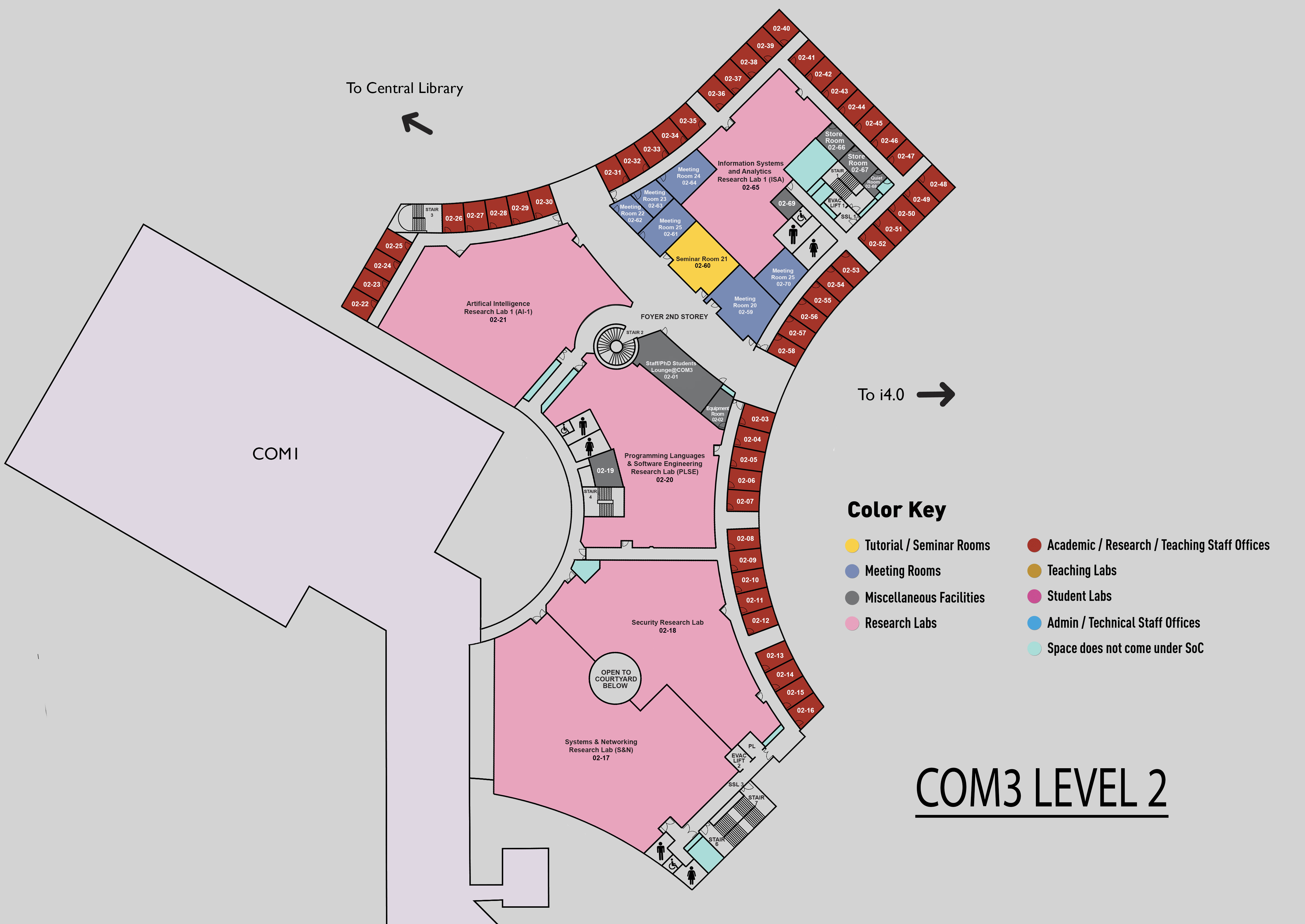Awareness and Autonomy in Sociotechnical Systems
COM3 Level 2
SR21, COM3 02-60


Abstract:
Sociotechnical systems enable large-scale connection and the dissemination of timely, engaging information. However, these systems are shaped by complex, often invisible governance structures—comprising rules, roles, and relationships—that significantly influence how they operate. Gaining even a basic understanding of these governance structures is key to using them more effectively and deliberately. Yet, many of the millions who depend on these systems are unaware of the governance mechanisms at play or their own degree of autonomy within them. In this talk, I will present methods to uncover invisible governance structures, illustrate the complexities of control, and highlight contestability approaches to reshape both governance and our relationship with technology and one another.
BIO:
Dr. Karrie G. Karahalios is an internationally recognized computer scientist whose research bridges computing, society, and systems design. In September 2025, she rejoined the MIT Media Lab as a Full Professor of Media Arts and Sciences, bringing a distinguished record of scholarship focused on algorithmic accountability, human-computer interaction, and responsible technology.
Dr. Karahalios holds four degrees from MIT: an SB and ME in Electrical Engineering and Computer Science, and an SM and PhD from the Media Lab, completed in 2004. Her doctoral work helped launch an interdisciplinary career that integrates technical expertise with social, legal, and ethical inquiry.
Prior to her return to MIT, she served as a Professor in the Department of Computer Science at the University of Illinois Urbana-Champaign (UIUC). She held affiliate appointments in Electrical and Computer Engineering, the Coordinated Science Laboratory, the School of Information Sciences, and the Unit for Criticism and Interpretive Theory. She also co-founded and co-directed the Center for Just Infrastructures, a cross-disciplinary initiative focused on inclusive, community-centered technology development.
Dr. Karahalios is widely recognized for co-developing the concept of algorithmic audits, a now-standard framework for diagnosing bias and discrimination in opaque digital systems. Her work has examined how algorithms influence user behavior and shape outcomes in contexts such as social media feeds, housing markets, health platforms, and civic technologies. Her research draws on computer science, sociology, law, psychology, and design to inform the development of more transparent and accountable systems.
In 2016, Dr. Karahalios was a plaintiff in a landmark ACLU lawsuit challenging aspects of the Computer Fraud and Abuse Act (CFAA), helping to establish legal protections for researchers examining algorithmic bias in public-facing systems.
Her scholarly contributions have earned numerous honors, including:
• ACM Distinguished Member (2019)
• SIGMOD Best Paper Award (2020)
• Alfred P. Sloan Research Fellowship (2010)
• NSF CAREER Award (confirmed via award type)
• University of Illinois Public Engagement Award (2015)
• Best Paper Award at CSCW (2023)
• Honorable Mention at CSCW (2019)
• Best Paper Awards at CHI (2008, 2009, 2015, 2017, 2025)
• Honorable Mention at CHI (2018, 2021, 2024)
She currently chairs the Steering Committee for the ACM Conference on Computer-Supported Cooperative Work (CSCW) and has served as a mentor and advisor to students across disciplines. Her publication record includes high-impact papers in CHI, CSCW, ICWSM, and UIST, many with competitive acceptance rates and lasting influence.
At the Media Lab, Dr. Karahalios is advancing research on contestable systems—interactive infrastructures that enable users and institutions to understand, question, and shape algorithmic decision-making. Her current projects explore the design of systems that foster civic participation, align platform governance with community values, and promote accountability in digital infrastructures.

